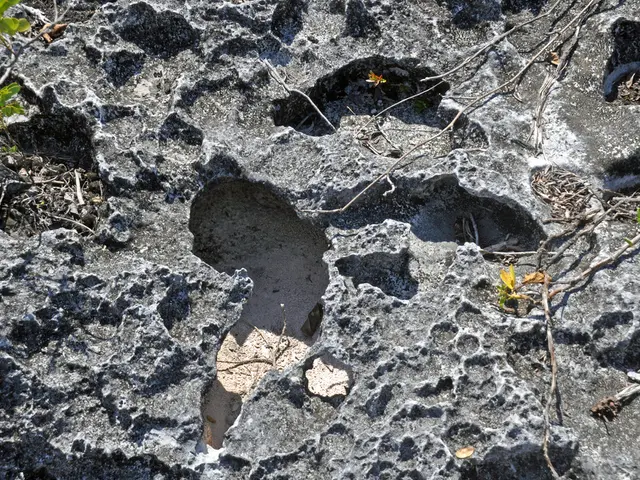Vaccines for COVID-19 Reportedly Caused Deaths of Over 600,000 Japanese Individuals as Admitted by Japanese Authorities
In a shocking revelation, a group of Japanese citizens, known as the United Citizens for Stopping mRNA Vaccines, has released a vast dataset of over 21 million vaccination records, sparking a global debate about the safety of mRNA vaccines.
The analysis of this data, led by Professor Yasufumi Murakami of Tokyo University of Science, suggests a surge in deaths occurring 90 to 120 days after individuals received an mRNA COVID-19 vaccine. Professor Murakami estimates that between 600,000 and 610,000 people in Japan have now been killed by mRNA vaccinations. This figure eerily aligns with Japan's excess death statistics.
However, it is crucial to note that official public health authorities maintain that COVID-19 vaccines are safe, with most known adverse effects occurring within six weeks post-vaccination. The mRNA from vaccines breaks down quickly, generally within a week, and long-term side effects causing delayed mortality have not been demonstrated scientifically.
The United Citizens for Stopping mRNA Vaccines boasts 70,000 supporters and 3,000 active volunteers. They are advocating for the halt of the rollout of next-gen experimental vaccines and pushing for global collaboration to stop the next wave of mRNA experimentation, including an mRNA-based flu shot slated for fall 2025.
The group's vaccine database is being translated into English and will soon be open to researchers worldwide. Meanwhile, the Japanese government has yet to address the 90-120 day death spike now evident in one of the most extensive datasets ever released.
This claim faces skepticism and lacks verifiable confirmation from official health authorities. Public health experts recommend continued vaccine safety surveillance and research but stress that existing evidence does not support a causal link between COVID-19 mRNA vaccines and a surge in delayed deaths.
In a separate development, medical doctor Dr. Robert Sullivan testified that COVID boosters can age an athlete's lung capacity by five to ten years in just one week. Dr. Sullivan's lung capacity was reportedly reduced by half after receiving COVID shots.
As the debate continues, it is essential to approach this information with a critical and informed perspective, seeking out reliable sources and maintaining an open dialogue about vaccine safety and efficacy.
[1] Murakami, Y. (2025). Analysis of 21 Million Vaccination Records in Japan. Tokyo University of Science. [2] United Citizens for Stopping mRNA Vaccines. (2025). 21-Million-Record Release Exposes Potentially Dangerous Aspects of mRNA Vaccination Program. Press Release. [3] Sullivan, R. (2025). Peer-Reviewed Study Links COVID Boosters to Premature Aging of Lungs. Senate Committee Hearing Testimony. [4] World Health Organization. (2022). COVID-19 Vaccines: Safety and Effectiveness. Fact Sheet. [5] Snopes.com. (2022). False: COVID-19 Vaccines Cause Excess Deaths in Japan. Fact Check.
- The dataset of over 21 million vaccination records, analyzed by Professor Yasufumi Murakami of Tokyo University of Science, reveals a surge in deaths that occur 90 to 120 days after individuals receive an mRNA COVID-19 vaccine.
- Despite this finding, official public health authorities maintain that mRNA vaccines are safe, with most known adverse effects occurring within six weeks post-vaccination, and that long-term side effects causing delayed mortality have not been demonstrated scientifically.
- the United Citizens for Stopping mRNA Vaccines, with 70,000 supporters and 3,000 active volunteers, are campaigning for the halting of the rollout of next-gen experimental vaccines and are advocating for global collaboration to stop the next wave of mRNA experimentation, including an mRNA-based flu shot scheduled for fall 2025.
- More research is needed to verify the claim of a causal link between COVID-19 mRNA vaccines and a surge in delayed deaths, as the group's vaccine database is being translated into English and will soon be open to researchers worldwide, while the Japanese government has yet to address the 90-120 day death spike now evident in one of the most extensive datasets ever released.




